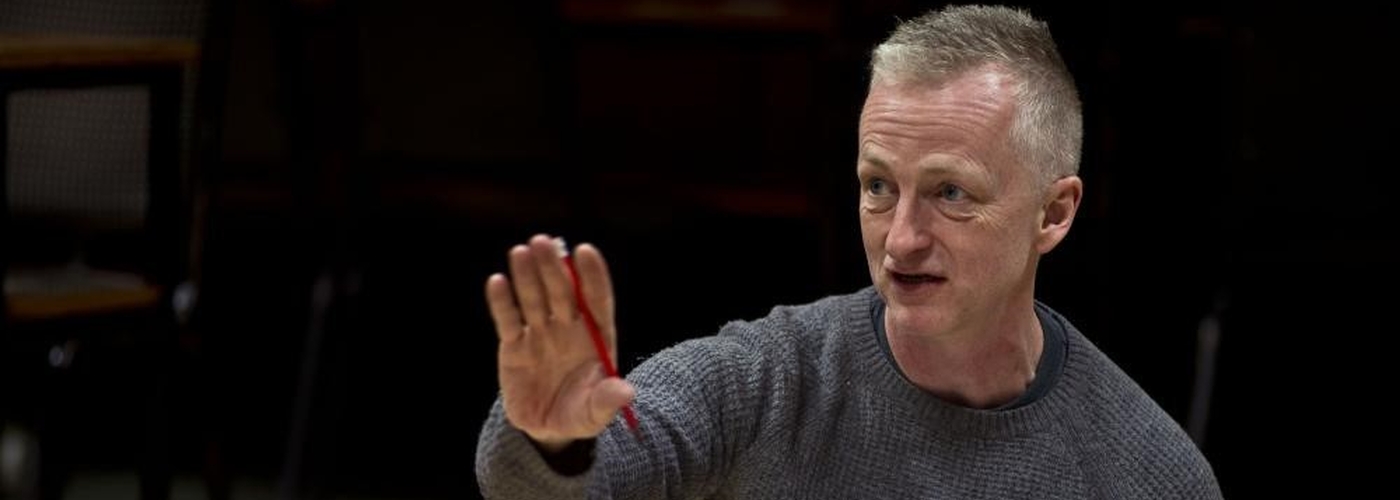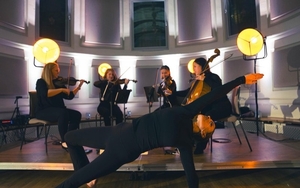Jonathan Schofield talks to the new man behind Manchester International Festival about changing times and changing emphasis
“ARTISTS get excited over Manchester International Festival,” says Artistic Director John McGrath. “It gives them freedom, liberates them, let’s them explore areas they might have been interested in but have never had opportunity to create around before. The festival has a reputation that makes people across the world want to work with us.”
This has been underlined by the upheaval in politics over the last 12 months. Artists respond to their times and there is a lot to respond to in 2017.
“MIF allows artists to take the temperature of the world,” says McGrath. “Thomas Ostermeier is typical. The way the world was changing gripped him. He wanted to say something. He wanted to make a new show and Manchester and this festival was the place to do that. This was his opportunity.”
Ostermeier’s ‘multi-layered production’ is called Return to Reims and is based on a memoir by Didier Eribon in which a returning son finds his family have swung from left to right, from communism to national socialism. The echoes are obvious across the West with the rise of popularist politics.
"Normally with festivals, artistic directors will have a few staples, a couple of inherited things. Not with MIF, not with this one..."
John McGrath seems excited as the 2017 festival launches. Yet there is a certain amount of trepidation.
He has worked as a theatre director in New York, London and from 1999-2008 was Artistic Director of Contact Theatre in Manchester. As Artistic Director of National Theatre Wales he achieved ‘an international reputation for large-scale site-specific work, digital innovation, international collaboration and extraordinary community involvement such as Michael Sheen’s The Passion, staged in Port Talbot with over 1000 local residents taking part’.
Manchester International Festival is different, though. And he’s needed help.
“Normally with festivals, artistic directors will have a few staples, a couple of inherited things. Not with MIF, not with this one. You start with a clean slate and in two years deliver a festival unique for new work. It’s daunting, you have to start at 100%, go full blast. I confess it felt like a mountain to climb at first. Fortunately, I have an experienced team used to picking up projects that nobody knows quite how they will work out. That’s exciting for the artists, but is very hard for the team delivering the festival, and I couldn’t have done it without them.”
This is the sixth MIF from its biennial inception in 2007. Throughout that period it has surprised and delighted Manchester as well as occasionally flummoxing the city. The previous Artistic Director, Alex Poots, delivered time after time memorable shows and installations never typically seen in the north west of England thus increasing people’s experience of culture and art. From Marina Abramovic’s Il Tempo del Postino through to Tree of Codes there’s always been gasp-in-astonishment moments.
Meanwhile, during MIF, the Festival Village in Albert Square has become the UK’s cultural locus: artists, audience, media, the passing general public mingle and mix. The atmosphere tingles with creative energy.
McGrath pays generous respect during the interview to Poots but he wants to spread that 'tingle'. I ask if there is more of a Mancunian accent in 2017?
“I want the festival to be more Mancunian and yet more global,” says McGrath. “There is more free work. The opening is a big free event in Piccadilly Gardens, not the usual ticketed event for a few people. This festival should be about great artists making great pieces of work and for them to try new ideas out but I want as many people as possible to experience that.
"Of course there are the local links. For example, this is the right time to do a production with New Order. The group have seen the festival develop. They are ready to be involved and I also like how their music has always been international in appeal, not easily bracketed, not parochial. Their show with Liam Gillick (acclaimed conceptual artist) should be extraordinary.”
McGrath pauses.
“I want this festival to feel very 'present' in the city, unavoidable. I want a sense of you can’t help be at the festival if you are in Manchester. The range of events, I hope, will ensure we welcome people that don’t normally see cultural festivals such as MIF being for them.”
Confidential picks out highlights for this year in another article. One event, from artist Phil Collins (no, not that one), that will make a permanent mark is the erection of a life-sized former Soviet-bloc statue of Friedrich Engels in Tony Wilson Square. Engels lived for almost 22 years on and off from 1842 in Manchester and it was this city that provided the evidence and material for much of Engels’s and Karl Marx’s work.
As we happen to be talking on International Women’s Day 2017, I say, “Having another dead male from the Victorian age erected in the city, might upset some people. There is a campaign for a statue of Suffragette founder and Mancunian, Emmeline Pankhurst, to be put up in Manchester to start to redress the balance.”
This is the only time McGrath bristles in the interview. He points out the number of female artists in the festival and highlights one of the shows.
“Yael Bartana is bringing What if Women Ruled the World,” he says. “Each night during the show the cast will be joined on stage by female experts in various fields. This will show an alternative vision to a male-dominated world.”
McGrath's passion and commitment, and almost his sense of wonder at being given this opportunity, is evident throughout the interview. Alex Poots did a fine job, but it's refreshing to hear about the new vision.
Confidential is confident that MIF 2017 will be a winner.
There was a general feeling in the city that 2015 didn’t hit the highs of previous festivals such as that of 2013. The range of events and the range of venues being utilised in 2017 looks set to give us back that 2013 mood.
“I’ve worked in theatre for so long,” says McGrath, “and I feel I’ve pushed the boundaries but always within that theatrical context. With MIF I’ve worked with artists across genres. You’ll notice in the festival programme there is no labelling of the performances and events, such as theatre or music, or anything like that. This is about artists working across different fields and producing performances and shows that bring so many various elements together.”
He pauses again, gathering his thoughts.
“I think this is one festival where people should go through the programme and pick the thing they most want to see but then, and this is important, pick one they would never have tried before.”
Manchester International Festival runs from 26 June-16 July. www.mif.co.uk Jonathan Schofield will be running the tours from the Festival Village in Albert Square throughout the event.














